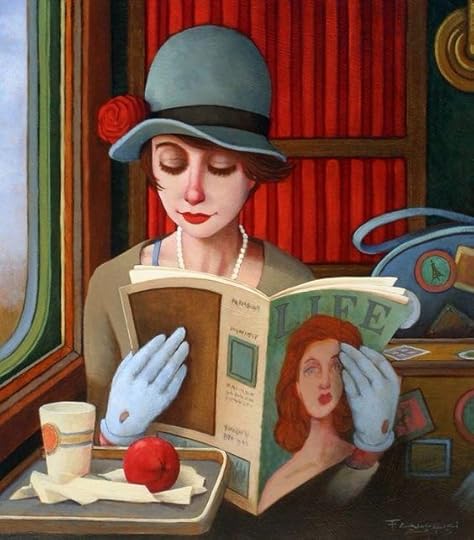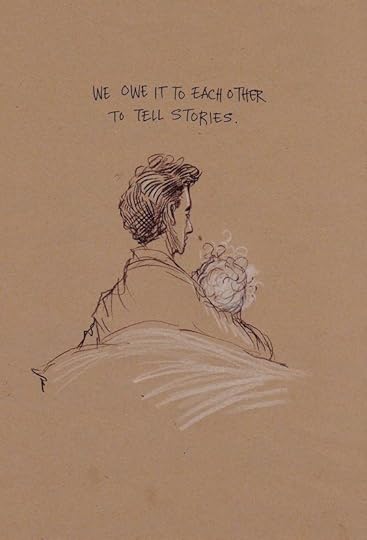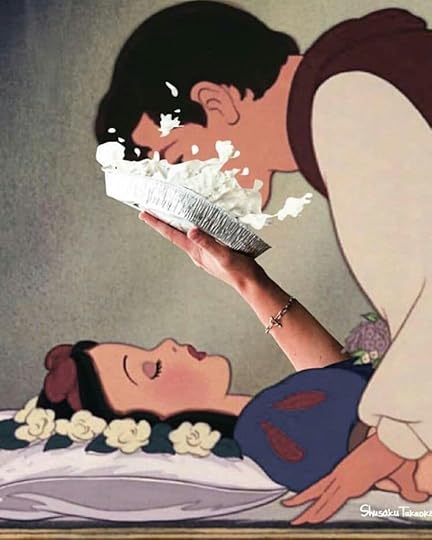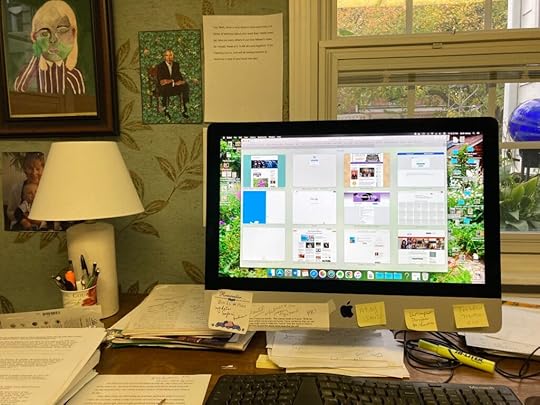Elizabeth A. Havey's Blog
January 1, 2023
A New Year…And Losing a Friend
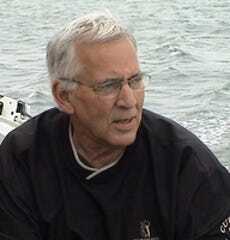 As a writer, you need someone in your back pocket, someone to encourage you, remind you to keep going, even though you have been rejected; even though you are doubting your abilities.
As a writer, you need someone in your back pocket, someone to encourage you, remind you to keep going, even though you have been rejected; even though you are doubting your abilities.
James Wagenvoord was that person for me. A fellow writer, we met as many writers do…at a dinner party. The hostess mentioned that we were both writers, and that began a wonderful friendship. But James was truly an accomplished writer as opposed to me! A New Yorker who had worked for the Time-Life Organization, he had published many books, all still available on Amazon. And being a true writer, he was more than willing to read my work, to meet at Borders Book Store, where we would talk for hours about writing…and he would make suggestions about character and plot development, becoming my amazing friend in so many ways.
MEREDITH PUBLISHING
When we met, we were both living in Des Moines, Iowa. James and his wife had transferred from New York, Linda taking on a major rule as head of Meredith Books. James, with all his successes, was content to watch over their daughter, Julia, and to spend time writing and reading–and slowly becoming my mentor.
When James was asked to oversee a photo shoot in Miami, where the tattoo artists Miami Ink were making it big with a television show, he went willingly. Back in Iowa with video and many notes, he asked me to write the text that would accompany the photos. It was the only writing project we did together, but it was a great opportunity for me. I had already been doing copy editing for Meredith’s decorating and nonfiction books, so I knew the Meredith routine. The book was fun and a success.
But in the publishing world, there are always changes, and eventually James and his family moved back east. We kept in touch by phone, and I flew out once to visit them in Philadelphia. Time passed, I called him a few times and left messages, only to learn just days ago that James died at the end of July. His belief in me and my abilities will always be a wonderful gift. His stories and his enthusiasm about writing are memories I will hold dear.
THE ZAPRUDER FILM
One of the most interesting parts of James’ New York life, was his ability to fly to Texas and procure an early copy of the Zapruder film, immediately after John F. Kennedy was assassinated. James’ interest in the film and all that it might reveal about the identity of the shooter never left him. James was bright, intuitive, kind and funny. I will miss him…he was truly a gift in my life.
Facebook Twitter LinkedInPinterestDecember 25, 2022
Wishing Everyone a Christmas of Peace and Love
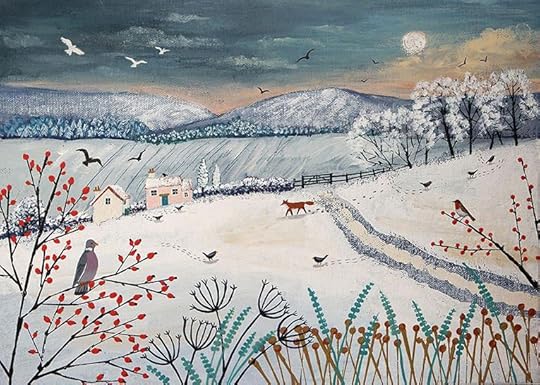 As I sit here preparing my post, it is 11:30 pm in Chicago, and thus almost Christmas Day. The weather has been wind, cold and snow, but we are fortunate to be warm inside. After seven years living in California, where Christmas is always snow-free, the weather here reminds me to be grateful for warm sweaters and boots, hot chocolate or hot cider…and to find beauty in the world when it is snow-covered.
As I sit here preparing my post, it is 11:30 pm in Chicago, and thus almost Christmas Day. The weather has been wind, cold and snow, but we are fortunate to be warm inside. After seven years living in California, where Christmas is always snow-free, the weather here reminds me to be grateful for warm sweaters and boots, hot chocolate or hot cider…and to find beauty in the world when it is snow-covered.
This morning, the first Christmas carol that filled our home was one of my favorites. You can live anywhere, be of any age to feel its compelling message. I can’t share the music with you, but I am sharing the lyrics and hope that many of you will know and love this carol as I do.
Title: IN THE BLEAK MIDWINTER….the version I love is sung by James Taylor. The music was written by Gustav Holst. The lyrics are from a poem written by Christina Georgina Rossetti. I am sharing the lyrics with you now, to wish you a Merry Christmas and many blessings. I encourage you to search for the carol, to hear the music that accompanies the following beautiful words…
Merry Christmas. Peace on Earth and Peace in Your Life.
In the bleak midwinter
Frosty wind made moan
Earth stood hard as iron
Water like a stone
Snow had fallen
Snow on snow on snow
In the bleak midwinter
Long, long ago
Angels and Arc Angels
May have traveled there
Cherubim and Seraphim
Thronged the air
But only his Mother
In her maiden bliss
Worshiped the beloved
With a kiss
What can I give him?
Poor as I am
If I were a shepherd
I would give a lamb
If I were a wise man
I would do my part
But what I can I give him
Give him my heart
Give him my heart.
Thanks to Jo Grundy Prints
Facebook Twitter LinkedInPinterestDecember 18, 2022
Mama, Did He Take A Bus?

Mama, Did He Take A Bus?
Obfuscation: the action of making something obscure, unclear, or unintelligible. “when confronted with sharp questions, some parents resort to obfuscation”
So, please consider the above definition while reading. Also, The Hemingway Society states that we cannot be sure it was truly Ernest Hemingway who said about the craft of writing: You simply sit down at the typewriter, open your veins, and bleed.”
So as you continue reading, please consider the above. Because writing often elicits deep emotions. And yes, I have cried while composing at my computer. And I have teared up when my work was rejected. Or in this case, misunderstood.
The story: Once upon a time, I entered a contest run by a group of published writers, a group named after a flower. You could send fiction or nonfiction. I sent nonfiction.
Someone in that group had to read my offering and then evaluate it. Whoever that person was didn’t like it, or didn’t get it, or maybe didn’t truly read it. But in her feedback and critique, she mentioned only one sentence: Did he take a bus? She simply could not get her head around that sentence.
BACKSTORY
Many of you who read me or know me from social media—have been privy to my backstory: my father died of a massive coronary, leaving my mother with three children, all under the age of six. The youngest? Three months.
Okay, readers, thinkers, mothers and lovers…as he grew, what three-year-old boy, who is gradually understanding that he once had something called a father, like his friend Jimmy has, wouldn’t want to know where his father went? And then at some point he is told, his father went to heaven. But what is heaven? So my brother asks: Did he take a bus?
Readers of contests, maybe all readers and writers….need to avoid obfuscation: the action of making something obscure, unclear, or unintelligible.Every mother and every father reading this right now, knows that children always have a deep and possibly complicated reason for asking a question. We also know that the moment we family members must answer that question is a precious moment. We can provide love and healing, or we can ignore the question, push the child aside, thus making the understanding and acceptance of life even more confusing, uncomfortable and possibly dangerous.
All parents know providing answers—well-thought out answers or basically THE TRUTH, will aid in the healthy growth of their child. Thus, my mother drove my brother to the cemetery, as she had done with me and my older brother. This was the best she could do to explain death, remembrance, and the continuation of honor and love. No obfuscation.
That brings me and you, Dear Reader, to the stories and the theology of this season…many of us believing in Santa Claus, writing him letters, asking for certain toys and gifts. Then on Christmas morning being thrilled or terribly disappointed. (Though, I cannot remember being disappointed.)
And now, another thought I recently had about our family history…because as my two brothers and I approached school age, our amazing mother sent all of us to the nearby Catholic school. Convenient, but maybe challenging on a philosophical or theological level.
And here is the point I am trying to make: at some level, I would be challenged to understand the Virgin Birth (in junior high…oh, that’s why they call her the Virgin Mary) and yes, as a child, I should be able to understand why MY FATHER died and just left me. Yes, he LEFT me and my two brothers, three little kids.
No. I could not understand that, and thus while my brother was thinking about his father on a bus, and could he take a bus to find his father, I also was going through a period of mourning, trying to cope with my father’s death. What is below describes that, and was also part of the entry to the contest.
The cherry tree swing is mine and after he is gone, I spend most of my time on that swing…I’m the swing and the swing is me—and day by day we work our way up the dimensions of the yard. The first few seconds my toes inside my shoes can stretch to the patchy grass by the apple tree, then to the gravel car turnaround under that tree, finally, when I’m really high, they touch the branches of the apple tree, the roof of our house. I fly, ride and then I’m singing: songs I know, a song my father taught me, I sing it over and over “Row, row, row your boat, gently down the stream…life is but a dream.” Songs I sing rocking myself to sleep at night; songs from musical comedies—”Oh what a beautiful morning” and “I’m just a girl who can’t say no” (having no idea what the words mean). I’m alone, clouds moving along the border of my sky, and it’s like seeing the very earth spinning on its axis. But I keep swinging, keep singing,
Conclusion One: By reading this, I hope you feel the love I have for my life, my family. Because when confronted with sharp questions, my mother did not resort to obfuscation. She told each of us the truth.
Conclusion Two: Writing about death, separation and mourning is extremely hard to do. But in my early thirties, I began the process—and I was right to do so. My mother was alive, she was there for my questions, my tears. She gave me all the details of the most difficult time in her life. And then later, I was able to go to a quiet room and yes, I could simply sit down at the typewriter, open a vein and bleed.”
Such a shame that person involved in the contest got hung up on those tender, ancient words…Mama, did he take a bus?
Facebook Twitter LinkedInPinterest
December 11, 2022
How and Why We Must Forgive Our Hurts
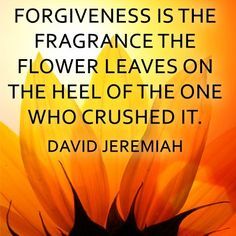 “Aw get over it.” “Hey, let’s just forget this whole thing, okay?” “I’ve moved on.” “Forgive and forget.” “Won’t you please forgive me?” “I just want you to know that I have forgiven you.”
“Aw get over it.” “Hey, let’s just forget this whole thing, okay?” “I’ve moved on.” “Forgive and forget.” “Won’t you please forgive me?” “I just want you to know that I have forgiven you.”
The key to any of the above is that sometimes we crave forgiveness, and sometimes we have to be the one to forgive. The latter can be very hard to do.
As a child, I experienced the need to say, “I’m sorry.” And being raised in the Catholic church, I had to experience Confession, now called Reconciliation. At the time, the focus was: what did you do wrong? …I can still remember my first sin. I lied, telling my mother that our neighbor needed kitchen matches. But really, the truth was that Greg and I wanted to sit on the tree stump at the back of his yard and LIGHT THEM. Which we did. Luckily, we did not set the world on fire.
During my young adulthood, either my thin skin got thinner or more likely, the issues on either side of the forgiveness question got bigger, more complicated. They could cause actual pain. And issues where forgiveness is necessary can weigh anyone down; they can create depression, rip dangerous holes in relationships.
It is hard to forgive someone, when you have no idea what you did wrong, or you don’t believe the thing you did wrong is truly worthy of the punishment you are receiving.
OPRAH, LEWIS B. SMEDES, and SIMON WISENTHAL.
I was an adult, and I had packed on some years, when I heard these words: Forgiving is not for the one who needs to be forgiven—it’s for the one doing the forgiving. Oprah Winfrey
I believe those words now, more than ever. It is definitely an idea that has taken root, growing strong in our culture. Oprah encouraged viewers to journal, which looking back was truly golden advice. When you sit with sadness…when you don’t understand why you are being punished…it can help to write things down. To ponder the situation from many angles. I am doing that right now.
But despite these ideas and aids, we all know the issue of forgiving is very complicated. And though I will always believe that forgiveness is for the one doing the forgiving—those of you who have been living in pain because of something someone did to you, or to someone you love, or because you believe you have not been forgiven for something you did—you realize that the entire process is not an easy one. Especially when the people involved are not talking to one another. Or refuse to talk to you!
I was reminded of this when reading Lewis B. Smedes book: The Art of Forgiving, When you need to forgive and don’t know how.
A core debate in the text centers on the story of Karl, a German soldier during WW II, who killed many innocent Jewish men, women and children in a Russian village…and then, before he was to be executed, desired the forgiveness of one Jew. He grabbed the wrist of Simon Wisenthal, who was then a young architect, asking him to represent all Jews and forgive Karl. Wisenthal writes of the incident in his book The Sunflower and states: The crux of the matter is the question of forgiveness. Forgetting is something that time alone takes care of, but forgiveness is an act of volition, and only the sufferer is qualified to make the decision.
Thus Wisenthal refused to forgive Karl, though over the years he wrote about and struggled with his decision.
Smedes writes that after the publication of The Sunflower, distinguished men and women from many walks of life were asked to comment on Wisenthal’s ultimate decision.
“Most of them believed that it was right and good for Wisenthal to not forgive Karl. Here are some of their answers:
You would never have been able to live with yourself had you forgiven him.
To forgive everything, means that one is lacking in discrimination, in true feeling, in reasonableness, in memory…
One cannot and should not go around happily killing and torturing and then, when the moment has come, simply ask and receive forgiveness.
I believe that the easy forgiving of such crimes perpetuates the evil it wants to alleviate.
THE ULTIMATE MORAL QUESTION
When examining Wisenthal’s dilemma in her essay, “The Ultimate Moral Question, Wendy Cooley ends with the following statement: They (the Jews in that village) were the ones who were murdered and brutalized and only they have the power to forgive those who have done them wrong.
Smedes presents the same idea: no one has a right to forgive someone unless he himself had been injured by that person. Something to ponder.
But the true purpose of Smedes book is to stress the following aspects of being able to forgive. As you read them, please try to apply them to events in your own life. There may be readers who have even had to deal with the arrest and incarceration of the person who hurt you or your loved one. Others will only see in the list, those aspects of personal relationships that were hurt by abandonment or betrayal or other inter-personal issues. But each of the following are basic aspects of forgiving.
Forgiving someone who did us wrong does not mean we tolerate the wrong that was done. Forgiving does not mean we want to forget what happened.Forgiving does not mean we excuse the person who did it.Forgiving does not mean we take the edge off the hurt that was done to us.Forgiving does not mean we surrender our right to justice.Forgiving does not mean we invite someone who hurt us once to hurt us again.This is heavy heavy stuff, but it can lighten the load and it definitely leads to healing.
But then there are times when you hear: “Move on, move on,” and you just can’t ! You’re stuck. Do the words get even come to mind? Of course they do.
Smedes writes: “Vengeance is the only alternative to forgiving. It is, simply put, a passion to get even. We have been unfairly hurt. … The scales are unbalanced. The only way to balance them and get life back to normal is to inflict as much pain on our abuser as he inflicted on us…”
But we can’t ! We absolutely cannot.
As Smedes writes, “…we are doomed to exchange wound for wound…pain for pain forever.” But when we stay away from vengeance and forgive, we are expressing our true and best nature.
Smedes: “..forgiving works on both sides of the street. It is a reciprocity. We do ourselves good only when we wish good for the other. And we do the other person good only after we have healed ourselves. Forgiving has to be both ego-centered and other-centered. Otherwise it cannot work.”
(At this point, I suggest you read the above sentences again! POWERFUL.
Finally, Smedes and others would conclude that forgiving is a journey. (and right now I am feeling it can be a rather long journey.)
Like all things in life, there are stages: the initial pain, the anger that pain brings, the utter change in a relationship because of the pain, the relapses—one day the pain is light, the next it again hits like a brick—and the need for help from a friend or counselor.
One comforting concept is Smedes approval of anger. He breaks it down this way:
“The enemy of forgiving is hate, not anger. Anger is aimed at what persons do. Hate is aimed at persons. Anger keeps bad things from happening to you again. Hate wants bad things to happen to him or her. Anger is the positive power that pushes us toward justice. Hate is the negative force that pushes us toward vengeance. Anger is one of love’s good servants. Hate serves nobody well.
So if you get angry when you remember what he or she did to you, it does not mean that you have not forgiven him or her. It only means that you get mad when people do bad things to you.”
RICHARD ROHR: PRIEST, AUTHOR and THINKER
Rohr’s words are words to remember: “Forgiveness is a decision, but making that decision doesn’t override the emotional residue that often takes much longer to release. That feeling of wanting revenge or wanting to assert your rightness or your victimhood—depending on the depth of your wounding—can take days, weeks, months and even years to dissipate. On certain days, when you’re in a down mood, your psyche will want to grab onto that hurt. You have to go through that necessary period of feeling half dead, half angry, half in denial—this is the liminal space in which we grow…”
Many of us live in liminal space–the space of unknowing. It’s the desert and we desire the green land with flowing water. But moving through that space can heal us and as Rohr says–we grow!!
That might be the very reason we are challenged by our neighbors, by our very living, so that we can experience the pain of hurt and eventually know the peace of forgiving.
Facebook Twitter LinkedInPinterestDecember 4, 2022
Keeping Reading…It’s Such a Pleasure
The illustration above caught my eye, the awakening and vivid colors: she’s on a train (I like reading on trains, on airplanes, or as a passenger on a long car ride); and the word LIFE on the magazine or the book she’s reading. Like the apple on her tray, the cup of water—reading is life-giving, reading should always accompany us on our life’s journey. And the colorful stamps on her luggage, stamps people once used to reveal and celebrate where they had been.
A bookcase full of books or a Kindle jammed with titles, that does the same thing, celebrates where you have been. Because reading is always about taking a journey, about opening your mind and emotions to someone’s ideas. Let’s explore some examples.
THE POEM: Billy Collins, our poet laureate from 2001-2003; verses from ONLY CHILD (here he wishes he had a sibling, dreams about it, writes about it)
I would gaze into her green eyes
and see my parents, my mother looking out
of Mary’s right eye and my father staring out of her left.
which would remind me of what an odd duck
I was as a child, a little prince, a loner,
…and maybe we would have another espresso and a pastry
And I would always pay the bill and walk her home.
THE ESSAY: Marilynne Robinson, from WHAT ARE WE DOING HERE? (for many years Robinson taught writing and literature at the University of Iowa, Iowa City.
The U.S is in many ways a grand experiment. Let us take Iowa as an example. What would early 19th century settlers on the open prairie do first? Well…they found a university, which is now about 170 years old. Agriculture became, as it remains, the basis of the state economy. How did the university develop in response to this small, agrarian population? It became…a thriving and innovative center for the arts–theater, music, painting and, of course, creative writing. …the arts are the signature of the place and have been for generations.
THE NOVEL: TAYARI JONES, from AN AMERICAN MARRIAGE
I needed to make some plans to get back to Atlanta, to greet Celestial skin to skin and ask her whether we were still married…Maybe I was setting myself up. Two years of no visit is a message; why did I need to hear it from her own lips? Whatever she had to say for herself would draw blood, and it wouldn’t be a clean cut. The truth would hurt jagged, like a dog bite. But there was still the simple undisputed fact that she didn’t divorce me. If she didn’t get out of the marriage officially, it was only because she didn’t want to. That carried some weight in my book. Besides, even a dog bite can heal.
NONFICTION: Margaret Robinson Rutherford, PhD from PERFECTLY HIDDEN DEPRESSION
As I’ve stressed before, the characteristics of perfectly hidden depression, in moderation, can be helpful. But when they begin to govern every aspect of your being, they can become a huge problem. It becomes self-destructive when your perfectionist critical voice is screaming at you nonstop in the background.
NONFICTION QUIRKY: Chimamanda Ngozi Adichie WE SHOULD ALL BE FEMINISTS (quirky, because this little book of 48 pages could change the world.)
Culture does not make people. People make culture. If it is true that the full humanity of women is not our culture, then we can and must make it our culture… My own definition of a feminist is a man or woman who says, “Yes, there’s a problem with gender as it is today and we must fix it, we must do better.”
And when working on a project, there are always MY NOTES…
MY FICTION: from WHEN THE COTTONWOODS BLEW
“Carole, if we were grabbing lunch in the cafeteria, constantly checking our watches, I might ask, how did I get here? Not our old joke, but now—for real. Because Sarah. Because Mark. With him, things feel different, right when my life is challenged. His kindness…But why? There’s nothing special about me, but damn, I need to change how people see me. Not as the mother of a lost child, not as the child abandoned by her father, not as the nurse who tries to help others while finding the world shitting on her…Carole, my only child is missing.”
Thanks to amreading.com for the photo.
Facebook Twitter LinkedInPinterestNovember 20, 2022
Mom, I Get It Now
We all have mothers and as we proceed through our lives, we sometimes question the actions of our mothers. Obviously, we stand in a different place in time, look at things from our perspective, our generation.
I have vivid memories of the phone calls my mother and I had every night around 5:00 pm No matter how long I had been married, no matter whether she was still working or had retired, we shared our five o’clock phone call. Every single week day and often on the weekends.
My mother was always supportive of me, my choices, but I still smile remembering the phone calls when my daughters were both in grade school. Mom would begin with the simple aspects of her day and mine. But then she would often launch into what was going on in THE WORLD, and often it was about children starving in Africa or a war that had forced families from their homes. MY MOTHER HAD A HUGE HEART. But while we were chatting, daughter Number One would pull at my arm needing help with a math question—daughter Number Two often right behind her with a similar question.
Sometimes, I would smile, trying to stay with my mother’s conversation, while pointing at something that might help with the math question, or whispering some direction. Often, I would walk into the living room to escape my daughters, give my mother an answer, give her the attention, the time she also deserved. I don’t remember being further hassled by call-waiting. I do remember I was often trying to prepare dinner, so there was some food either on the stove or in the oven. Let’s just say it could become mini-chaos.
But my mother was RIGHT, her heart and mind open to critiquing the laws and the actions of governments that bind us together, that make the environment we experience safe for raising children, for our very lives. I was fortunate in her heart, her soul, that she needed to tell me about those who were suffering, to share with me her feelings about the problems with governments, the laws that were wrong. Truly, my mother was totally amazing. And now that my children are grown, now that I am living those “beyond children” decades, I actually better understand my mother’s giving and her intense passion.
A MOTHER IN MY FICTION
Thus, when I am writing, those phone calls, my mother’s ability to remind me that making dinner, helping with homework was a very important role in my life–but I also needed to allow my brain to expand into the wider world, to take in major events that might actually affect the world I was raising my daughters in.
That understanding has worked its way into my fiction. This from a work-in-progress.
Ella would always defend her practice of medicine, because she was a part of it—medicine was what she was. It was not unlike when she had defended certain aspects of current culture to her mother. Cecile ripped apart the changing mores of society, but Ella defended change, because the result was Ella’s society, her culture. She lived in it and dealt with it and so had defended it. She couldn’t condemn what was part of her, what she had embraced and brought Sarah into. If she had condemned all of it, then she would be condemning herself.
But now? The awful things that happened to other people had happened to her, had touched Ella and David in the tenderest of places. Their daughter was missing. Sarah was gone, because of a society full of people who did not obey basic laws and mores; gone because Sarah’s mother and father were a part of it, hadn’t fought it, and had, over time, insidiously succumbed to it.
FINAL THOUGHT
No matter where you live, Dear Reader, or your age or the ages of
those you love, we all must care every day about what is happening in our country and to our democracy. We all must read and seek TRUTH, educate ourselves. We cannot turn away, saying:
“What goes on over there won’t hurt me.”
Or “I’ve got money in the bank, so I’m okay.”
Or “It’s not hurting me, so I don’t really care.” IT CAN HURT YOU.
My mother believed in connection. Maybe walking the streets of Chicago to the train, sitting in doctor’s offices as she aged, reading a daily newspaper or talking to me about my day and always LOVING HER FAMILY made her a stalwart believer in making things right. In helping others.
I think of her often. I do my best with my actions, words and thoughts–like this post. And once again, I thank you for reading and I believe the drawing above adds to the message.
Facebook Twitter LinkedInPinterest
November 6, 2022
Prejudice and Its Roots
As a maternal-child RN, I worked at an inner-city Chicago hospital on the maternity unit with many wonderful colleagues—doctors, nurses, interns. As a team, we cared for patients of different religious and racial backgrounds, and there was never an incident that might have created a problem due to those differences—until one day, there was.
When I came on shift that afternoon, I introduced myself to my assigned patient, worked up her chart, drew her blood, assessed the fetus and began helping her through the early stage of her labor. Though she did not speak English, all went smoothly until her husband arrived. He took one look at me and left the room. I continued helping my patient, until the charge nurse called me out into the hallway. I was relieved of my duties. I could no longer handle this patient’s care. Why? The husband had requested another nurse.
At the time I was upset, this decision made no sense. He had just arrived, his wife was doing fine, I had cared for her every need, and though she did not speak English, she had not objected to any aspect of my care. But now none of that mattered.
Angry, he spoke to the head nurse, announcing he didn’t want anyone touching his wife, but that was impossible, for he had chosen to bring her to a hospital to birth this child. He did keep arguing: this was his child. True, but it also was her child, her body in pain, her body to push this infant out into the world. And now, because her labor had truly progressed, and because of hospital policy, he had to allow a nurse on our unit to care for his wife, someone to be in the room with her, soon to help move her to delivery. Or he could have his wife removed from the hospital…more anger, though he finally made a choice..he would allow a nurse from the personnel a vailable to care for his wife, but only if it was Evelyn. His choice was a fortunate one for him, Evelyn’s skills being impeccable.
At first I didn’t understand all these changes, though I later learned it wasn’t my skill set he was concerned about..it was my very presence in the labor room, my blonde hair, my white skin. Evelyn was Black, and that made her acceptable, because of his Muslim faith…and any other nurse touching his wife must also be a woman of color. I accepted this, his wife in the bed, her beautiful eyes communicating that she couldn’t say anything. Evelyn did have more years of experience than I did—that being a comfort to me, knowing my patient was in good hands.
But the skin color thing made me curious, and so later I asked Isaac Thapedi, my sister-law’s husband. Isaac had escaped apartheid in South Africa in his teens, had arrived in America to study and become a well-known surgeon. He relayed an interesting twist in his answer: in South Africa for many many years, Black doctors could not take care of white women.
Depending on the country, the society, such demands and experiences related to health care have changed over time. But that’s not to say that we have risen beyond prejudice. In a book analyzing the roots, the incongruities related to racism, the author writes: racism messes up our brains; how we were and are raised, our various cultures, contribute to racist feelings, reactions–locking a car door when you see a person of color, or a person dressed a certain way; avoiding getting in an elevator because of who is already occupying it. Because all of us must be honest when asking ourselves if we have ever done any of these things. I want to believe that in many ways I have healed, have abandoned the most of these egregious and imaginary concerns. But for many, fear still lurks somewhere in the whorls of your pre-disposed brain.
So much of where and how we were raised, the schools we attended contribute to prejudice in this country. To fill in some of that lack, the Bill Cosby Show was genius. It showed we white folks that Black families were like white families, or Latino and Asian families. We all have struggles raising children, working and being there for our kids, knowing when and how to deal with teenagers who want to date, drive a car, forget about curfews, take on adult behaviors too soon…all the situations we must face as our children become adults. (So sad that Cosby’s mistakes pushed that show back into the film can.)
But most of us now know that there are positive decisions we can make after thinking, writing about this issue: use empathy, let understanding come before anger. Fear and anger only make a person hard, mean–and in the end, fear and anger will probably shorten your life. Watch out for that kind of stress that can mess with your heart, while making your brain believe things that aren’t true. Work for a one to one relationship wherever you go. And find a great doctor like I did–he or SHE might just be from a country you have never visited, know nothing about. Be open, ask questions, as we all now live in a global village.
Facebook Twitter LinkedInPinterest
October 30, 2022
My Halloween Costume: The Evolution of Snow White
Snow White wasn’t loved by the modern mother in FAMILY TIES, Elise Keaton. No, not at all. To Keaton, Snow White was passive, just hanging around waiting for a prince.
But growing up, Disneyland and cartoons like Snow White were part of my childhood. And after this exposure, I wanted to be Snow White, though I had no idea I was denying my feminist side, waiting for some prince to come along and rescue me from my choices.
But there was that time when I loved seeing Snow White’s image, though being blonde, I longed for her ebony-black hair, the red bow, flowing yellow skirt, and dark blue cape. So one Halloween when my granddaughter said she wanted to be Cinderella, I gladly bought her the costume. Because yes, I was now living out my childhood dream through her, though being careful to not try to convince her to be Snow White instead!
But here’s the meat of the story. Before my granddaughter was born, I was once again at Disneyland, this time with my brother. We went into one of the shops in Fantasyland, and I actually tried on a Snow White costume, my size. Yes, you can purchase an adult costume for not a small amount of money and live out your childhood dreams. REALITY!!
But as I stood looking at myself in the mirror, of course I wasn’t Snow White–in any way at all, considering my feminist side, my politics and life choices. But the truly powerful part of this experience was a memory. Because yes, the child buried inside me would have been joyful to be finally wearing such a costume. But then, looking back, I realized she truly did very well without it.
Because then, my mother tied a white cotton dishtowel around my neck–my Snow White cape, that fell not so gracefully over my corduroys, tee-shirt, and scuffed shoes. But in my child mind, I was dealing with the Wicked Queen, hanging out with the Seven Dwarfs. Surely the image in the mirror was different, but still wonderful filtered through my amazing childhood imagination.
AND NOW?
My granddaughter and other modern children don’t have to leap very far to fall into other worlds, live out their fairytale and story-dreams. The Cinderella costume my granddaughter wore was an exact replica of the Disney image. Television and video games also provide exact visual images, encourage creative imaginings for young minds. But if you focus on that, it is a situation of some concern. Using your childhood imagination is and was such a gift. Yet at the same time, modern games are more challenging, combining fine motor skills with brain skills at a speed I could probably never attain.
BOOKS, IMAGINATION, HALLOWEEN
Books still provide the printed word as a pathway to fantasy and mind-dreams. Though some books have pictures, artwork, a child can still create their own worlds using that incredible gift–imagination.
But the best part…On Halloween, it always happens—so many parents and their creative kids work that imagination, let it run wild, so that when I open my door, there stands a child dressed as a sausage, a stack of books, or an amazing vampire that sprang from a crazy, wild vision.
So thanks to my mother, as I now realize my dishtowel was the right way to go. It triggered my imagination. In my childhood, I had books that provided constant discovery. The imagination worked over time creating fantasies: Santa Claus, the Easter Bunny, the Tooth Fairy–all exciting and very real. All you had to do was live inside your head. AND, when you put on a bright colored towel that hung down to the floor, you were a pirate. And when you rode off on your bike to escape your parents, your bike became a beautiful horse taking you far off into the desert. It was fantasy. It was imagination. It was incredible.
SUCH A GIFT
Children will always need their own imagination turf—those places of solitude that we found growing up: a tree fort (a fancy parent-built one or a plank in a tree); a tent (the real thing or a sheet draped over chairs); a clubhouse, one assembled by Dad or the corner of the garage, a closet, the old shed out back…they all work just as well.
It’s in the mind’s eye, that special place where children’s games and imagination leave behind reminders of parents and home. Another life exists. It’s the cardboard box and string thing. Or it can be where the video game gets solved without using all the gold coins. Because it’s always been true, imaginations need exercise as much as arms and legs do. And when my granddaughter put on her Cinderella costume, I was entranced. No dish towels for her. But the Snow White adult costume? We didn’t buy it. Instead, that day I bought a plastic statue of Snow White, only later to discover it’s really a bank, a nice metaphor for holding my memories, reminding me that the human imagination is still alive and kicking.
HAPPY HALLOWEEN!!
Facebook Twitter LinkedInPinterestOctober 23, 2022
Wise Words from Writers for Writers
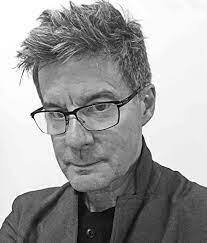
Donald Maass
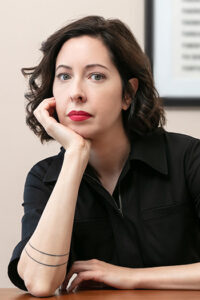
Sarah Manguso
“The purpose of being a serious writer is not to express oneself, and it is not to make something beautiful, though one might do those things anyway. Those things are beside the point. The purpose of being a serious writer is to keep people from despair.”
“And if you keep that in mind always, the wish to make something beautiful or smart looks slight and vain in comparison. If people read your work and, as a result, choose life, then you are doing your job.” Sarah Manguso
(Such a profound thought, one to ponder, for writers and for readers.)
Sarah Manguso also writes: “ All writers will envy other writers, other writing. No one who reads is immune.”
And she goes on… “ To write despite it, I must implicate myself, to confess to myself, silently or on the page, that I am envious. The result of this admission is humility. And a humble person, faced with the superior product of another, does not try to match it or best it out of spite. A humble person, and only a humble person, is capable of praise, of allowing space in the world for the great work of others, and of working alongside it, trying to match it as an act of honor.”
This last sentence of Manguso is such a beautiful thought. Because truly, when you first tell yourself you ARE a writer or that you want to BE A WRITER, is it not because of what you have read? That someone’s words carried you away, or made you set down the book, the poem, the article and look into space, the ideas floating there, the wonder over those words, that scene, that philosophy. So that yes, many writers become writers, because they were inspired when reading.
AGENT, FRIEND & WRITING GURU, DONALD MAASS, PROVIDES THOUGHTS ON WRITING
“Stories do not require a consensus. They do not legislate. Their purpose is to persuade. But persuade us of what? And how?
In a novel, (or screen play, script that becomes a film) to prove others wrong, it is first necessary to acknowledge that they may be right. So…
create characters who represent divergent ways of thinking and doing–actually opposing ideas are represented by opposing characters. (Brilliant and basic. Every television drama presents tension–because people with differing points of view are interacting.) But to be strong, each character must face their weaknesses. (As writers, our characters face what we are afraid of). As readers and viewers we will not be moved unless we see humanity first. The character must fail. And then to persuade us to change, the character must change because of the failure. They see the light, in other words.”Maass also states:
Writers must create antagonists whose case is excellent and heroes who are flawed. But in order to truly be a hero, those characters must learn and then change. Thus the power of storytelling to change us (the reader) lies in the courage writers summon to see things as others do. It depends on creating heroes who are flawed and must learn. Most of all, it requires that authors humble themselves, writing not out of resentment but out of twined compassion and conviction about what is right.Finally, Maass asks: “What is the bell you will ring in your writing today? What clear and simple truth does it sound? Words are strong when you know their purpose. Stories speak loudest when the storyteller first listens.”
That last sentence….could be applied to every conversation we have, to those times when we are making decisions, evaluating pros and cons, arguing with a spouse or our progeny Are we listening?
FINAL THOUGHT
Writers speak through their characters. They use their so-flawed-ideas and their closer-to-perfect ideas. Both make it on to the page. My novel-in-progress presents a crack in the foundation of a marriage: one of the partners decides to forget an initial pledge to be compassionate in life and help others, so he is turning away. But she is not. And that doesn’t make her an angel, because maybe she is overboard, in some cases using hubris in her belief that she can change people through empathy and compassion.
Being a writer, helps me day to day to grapple with my own fears and insecurities while getting into the skin of my characters.
So thanks for reading. As Sarah Manguso states above, I will keep reading and writing–knowing that both will fight off despair.
Facebook Twitter LinkedInPinterestOctober 16, 2022
Guns, Babies…And Always Writing…
Though I’m a blogger, I am a writer first, and have been taking writing courses through WRITER UNBOXED, an online platform that describes itself thusly:
Writer Unboxed is dedicated to publishing empowering, positive, and provocative ideas about the craft and business of fiction. Founded in 2006 by Kathleen Bolton and current editorial director Therese Walsh, the site now hosts more than 50 contributors, including bestselling and rising authors and industry professionals. Writer Unboxed has been named a best site for writers by multiple outlets over the years, and we’re grateful for every mention. Writer’s Digest has notably named WU a best site for writers every year since 2007. WU is known for its robust comment section, where the conversation further evolves with the input of community members.
Currently, at Writer Unboxed, I am part of a list of writers labeled, ALSO CONTRIBUTING, my goal to become one of the monthly contributors. And for the past two weeks, I’ve been taking online classes through Writer Unboxed, all dedicated to the craft and business of writing.
SO WHAT ARE MY BASIC GOALS?
My family knows I’m a writer. I’ve written three novels, none of which are published, the first of which I have been rewriting and plan to publish in 2023.
In 2015, with the aid of a former instructor, I published A Mother’s Time Capsule, collection of 13 stories, some taken from longer works, others being short stories I have written for little and literary magazines. And, of course, every week since forever, I publish my blog post here. But my future goals are to expand what I write about and to eventually share some of my longer works with you…and now on to a few topics for today.
From the NEW YORK TIMES…it being even more timely, since the decision today that the shooter who took the lives of seventeen people (high school students just beginning their lives and teachers dedicated to helping them) gets to go on living, though locked up in a prison cell.
How about we treat every young man who wants a gun like every woman who wants an abortion…mandatory 46 hr waiting period, parental permission, a note from doctor proving he understands what he’s about to do, a video he has to watch about the effects of gun violence, an ultrasound wand up his—-just because. Let’s close down all but one gun shop in every state and make him travel hundreds of miles, take time off work, and stay overnight in a strange town to get a gun. Make him walk through a gauntlet of people holding photos of loved ones who were shot to death, people who call him a murderer and beg him not to buy a gun. It makes more sense to do this with young men and guns than with women and healthcare.
Nev Schulman, is credited with this, but he may not have written the original work. He did post it.
P.S. Versions of this post have been circulating with Gloria Steinem’s name attached since October 2017, when a gunman opened fire at a Las Vegas music festival, marking the deadliest mass shooting in recent American history. Steinem posted a version of the quote to Facebook in 2015 and disclosed that the piece was not her own.
Wouldn’t it be awesome for folks to be arguing over a quote you might have said or written?
Facebook Twitter LinkedInPinterest
